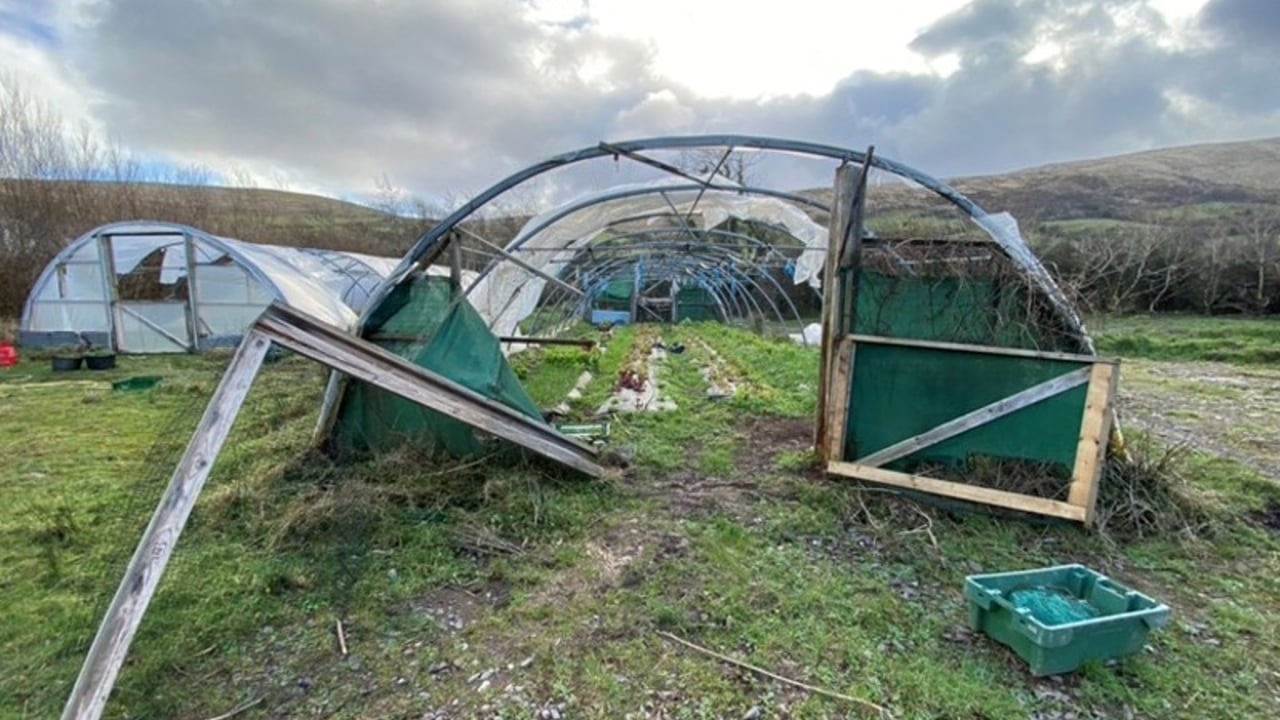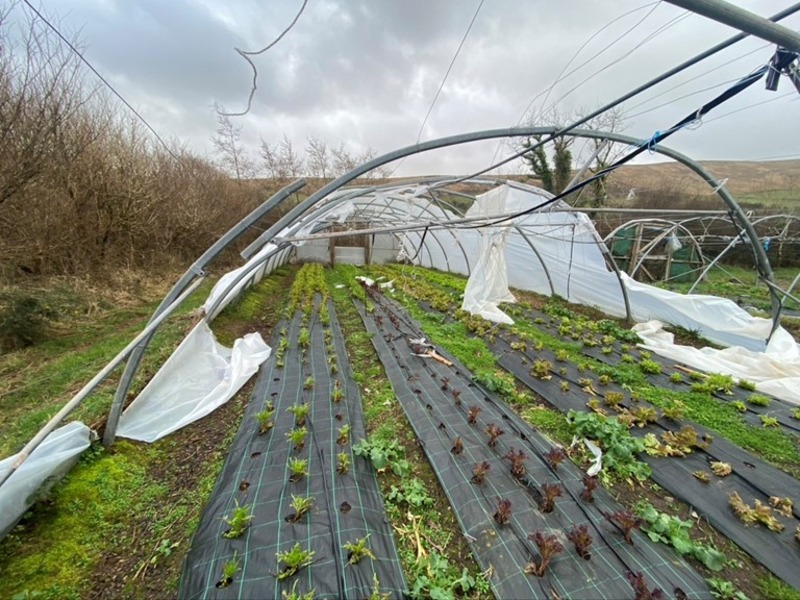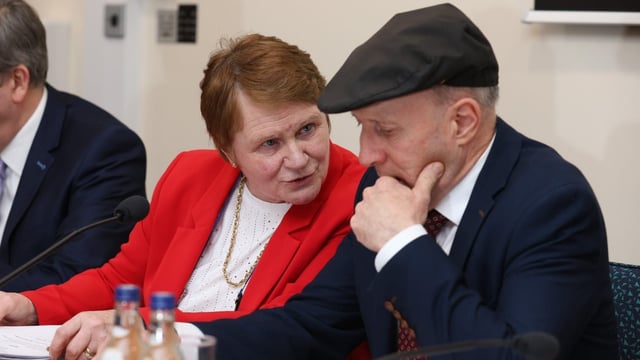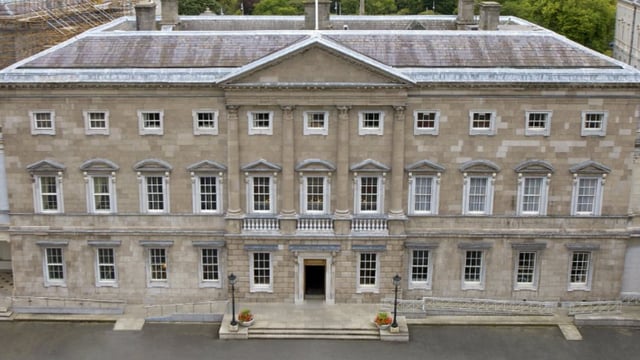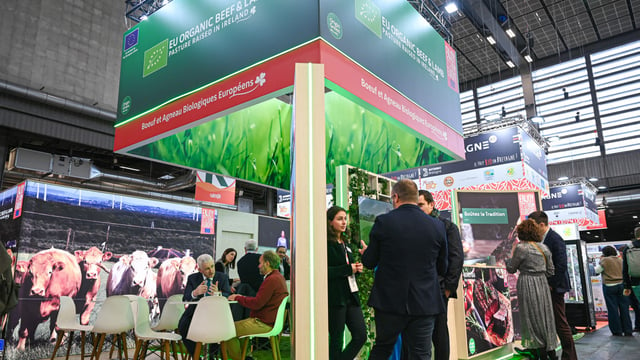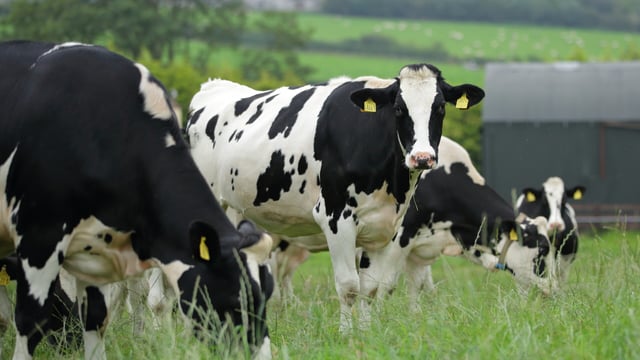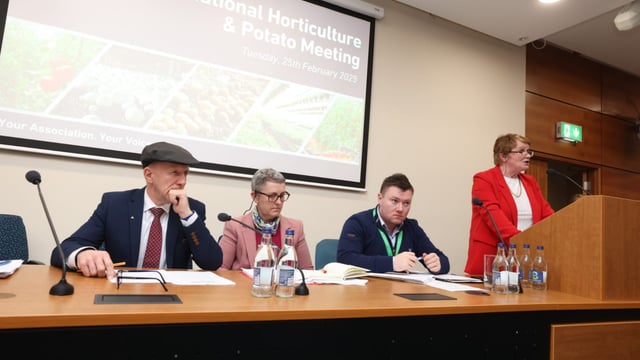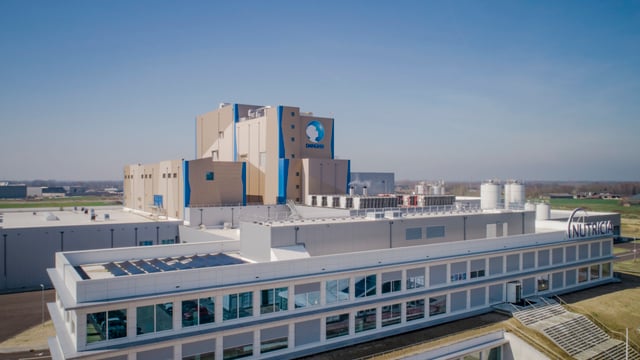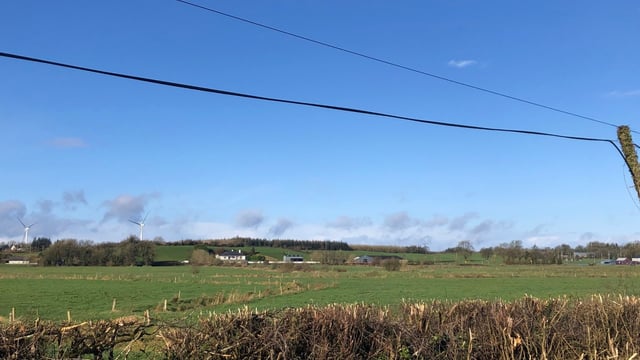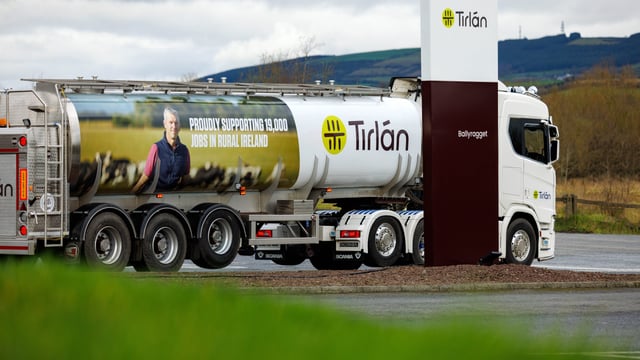Small growers hit by storm damage say scheme 'falls far short'
Small growers who have been severely impacted by Storm Éowyn are appealing to the government for more simplified and urgent financial support.
Earlier this month, the Department of Agriculture, Food and the Marine (DAFM) announced the reopening of the 2025 Scheme of Investment Aid for the Development of the Commercial Horticulture Sector in the aftermath of the storm.
The scheme will provide grant aid at a rate of 40% (50% for young farmers and licensed organic growers) for approved capital investments.
The minimum investment which will be considered for grant aid is €7,500, excluding VAT.
To facilitate efficient administration of applications, DAFM said the closing date for receipt of applications is Friday, March 7, 2025.
Small growers
However, Talamh Beo has claimed that this scheme "falls far short of growers' needs".
"It does not reflect the urgency at hand and is burdened with excessive conditions, particularly the €7,500 minimum investment requirement.
"Additionally, it fails to address the income disruption caused by crop losses," the organisation said.
Talamh Beo, which advocates for food sovereignty and agroecology, said that many of its members are small growers and farmers dedicated to the domestic market who have been severely impacted by Storm Éowyn.
"Some of our colleagues have lost more than 50% of their entire polytunnel infrastructure.
"These tunnels are essential for the continued success of these small businesses, yet they are uninsurable—leaving food producers not only with an immediate and severe loss of income but also the burden of significant rebuilding costs," it said.
The organisation has collected over 2,000 signatures through an online petition as part of its appeal to the government to provide financial support to affected growers and farmers.
Thomas O'Connor, a member of Talamh Beo, runs Manna organic farm with his wife Claire on the Dingle Peninsula in Co. Kerry.
The farm provides produce for his organic food shop which is based in Tralee.
Similar to many other small growers around the country, polytunnels and crops on the farm suffered significant damage in Storm Éowyn.
"Polytunnels are really important to small scale producers as they extend your season and allow you to keep salads through the winter. It could usually be 20-30% of a local food producer's production," he told Agriland.
Scheme
Thomas said that the government scheme does not provide grant aid for repair work and requires planning permission or an exemption which may take months to secure.
He believes that the scheme will work for larger horticulture producers who would have the ability to access finance to fund projects before getting the grant back.
"For smaller scale food producers, it's taken us a good few years to build up our infrastructure. We're also not in a very high profit business so we don't have that excess and we wouldn't get access to credit," he added.
Thomas said that smaller growers are looking for government support that is "very basic and straightforward" such as a per metre squared payment which could be broken into several categories.
"We were hoping there would be an emergency fund that would support growers to get up and going again.
"This is about the small scale growers affected by the storm but also the country as a whole, because our food security and food sovereignty is dependent on our local food system," he said.
"This response is kind of an insult to us because it just shows that the system really isn't listening to how important our local food producers are," O'Connor added.
Fundraising
Thomas and his wife decided to launch a fundraising campaign as they felt the government scheme would not work for them.
It is a move that has been replicated by some other small growers impacted by the storm.
"We did put up the GoFundMe campaign, but only as a last resort. It was something we didn't want to have to do.
"We didn't want to have to go to our friends and our family and our community because we're a little bit stubborn. We wanted to be able to do it ourselves but we couldn't.
"We thought there might be support coming from the government that would be applicable but it turns out what is being offered isn't suitable at all," Thomas said.
To date, over €6,600 of the €10,600 target set by the couple has been donated, which will cover the cost of materials to repair the damage to the two polytunnels.
"It was very hard for us to put up the GoFundMe campaign but actually we went from being in a fairly very dark place five or six days ago having that financial pressure and not knowing what we were going to do, to taking the step and putting ourselves out there.
"Seeing the response coming back from our community was really heartening and has put a pep back in our step to keep going with what we're doing," Thomas said.

